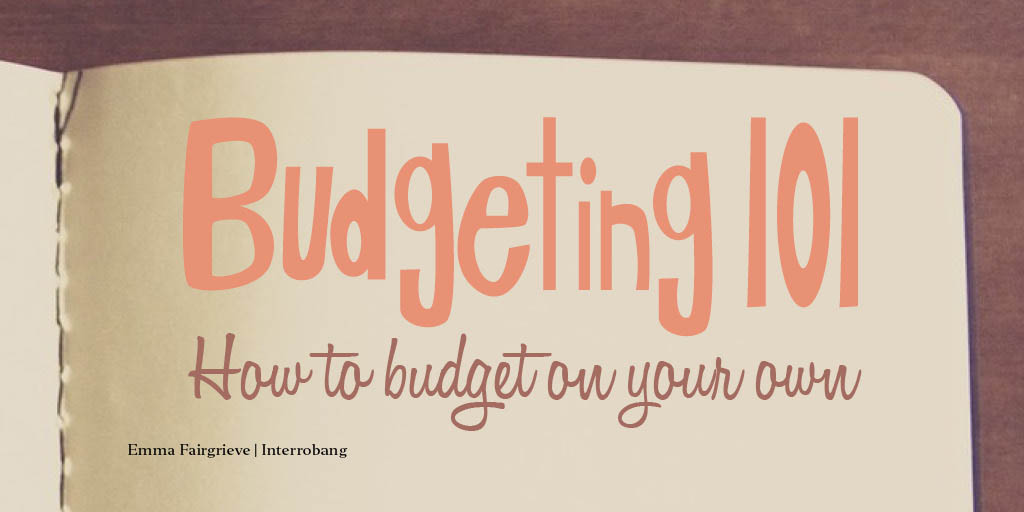Budgeting 101: How to budget on your own

The key to living independently is knowing how to work with your budget. Knowing how to budget is an important skill that will follow you for the rest of your life. Budgeting is a tool to help you get out of debt or prevent debt in the future. Knowing how to handle your money on your own for the first time can be stressful and may seem overwhelming. However once you know the basics of budgeting, it is not as intimidating as you may think.
Write down your financial goals
Knowing what you’re working up to as your current goal is a great place to start before you get into figuring out your budget. Your goal can be anything such as hitting a number savings, saving up for an item you want or for a trip.
Write out your expenses
The first step in figuring out your budget is having an idea of how much you spend on a monthly or bi-weekly basis. Expenses can include: rent, hydro, internet, cell phone, entertainment, clothing and groceries. Check your banking app/website and look through how much you typically spend (in the time period you have chosen) and see where that money is going. Take a step back and think if the amount you are spending is sustainable and can help you work towards your financial goals.
Know your income
Your budgeting can depend a lot on your income. If you have a pretty consistent income and you know exactly how much you will be making from your paycheque, this will be a bit more simple. Average out your last few paycheques and lower the average to an even number. Even though you may be making more than what that number shows, it gives you an estimate for the minimum you will be making.
Compare income and expenses
After adding up your income and expenses, you now have to decide how much money you will have at the end of your budget cycle (bi-weekly or monthly). If your expenses are going over your average income, it’s time to re-evaluate your spending. Spending over your budget can lead to debt if you’re not careful. Based off of these numbers, how much wiggle room do you have based off your income? Is there an expense that you can lower? What has to stay the same? Based off these numbers how much can you save in a month? It’s important to make sure your budget allows for some monthly savings and/or to go towards paying of debt. These are all questions that you need to answer to start your new budget.
Set your budget
Once you know the numbers for all the above it’s time to start tracking. You can track your budget on an Excel spreadsheet, an app (like EveryDollar) or old fashion pen and paper. Holding yourself accountable is that hardest part budgeting, but once you have a plan laid out in front of you, you’re already making strides to your eventual financial goal.















